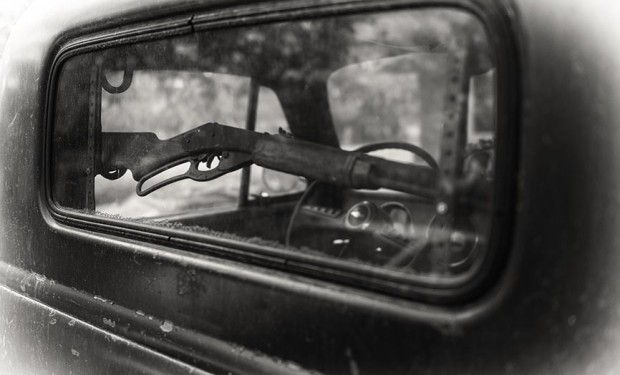City of Baton Rouge Permanently Enjoined from Enforcing Firearm Ordinance
A Judge for the United States District Court for Middle District of Louisiana has found that Baton Rouge Ordinance § 13:95:3 violates the Second Amendment.
This article is the second in a three-part series on the legal issues surrounding the open carry of firearms. You can read Part One here.
With tensions running high over the firearm debate in this country, Chief Judge Brian A. Jackson of the U.S. District Court for the Middle District of Louisiana issued a decision (PDF) last week which enjoined the City of Baton Rouge from enforcing a local ordinance on the grounds that it violated the Second Amendment.
On October 13, 2012 Ernest Taylor was stopped after allegedly pulling out of the “Romeo’s Lounge” and Dollar General parking lot in Baton Rouge without his headlights on. During this traffic stop Taylor informed the investigating officers that he had two rifles in his car, both of which were in plain view inside the vehicle. A third rifle was discovered in the trunk of his vehicle after a more thorough search by the officers. After the officers found the rifles they arrested Taylor under Baton Rouge Ordinance § 13:95.3 which provides that:
“(a) It shall be unlawful for any person to have in his possession a firearm, or other instrumentality customarily used or intended for probable use as a dangerous weapon, in any premises where alcoholic beverages are sold and/or consumed on the premises…
(c) The phrase, “…premises where alcoholic beverages are sold and/or consumed on the premises” shall include all of the licensed premises, including the parking lot.”
The punishment for this ordinance included a fine which could be no more than $500 or no more than 6 months in jail. There was no evidence that Taylor had at any time possessed a firearm inside an establishment that served or sold alcohol.
While analyzing the complaint under the guise of strict scrutiny the court found that “Taylor’s pleadings establish[ed] a viable claim for relief under the Second Amendment.”
Taylor filed this lawsuit under 42 U.S.C. § 1983, alleging a violation of the Second, Fourth, Fifth and Fourteenth Amendments to the U.S. Constitution. The judge was forced to enter a default judgment against the defendants (the City of Baton Rouge, the Baton Rouge Chief of Police, the East Baton Rouge Parish Attorney, the Baton Rouge City Prosecutor, and the three arresting police officers) due to their failure to file a timely answer. The defendants failed to answer the complaint up until the time Taylor filed a motion for preliminary default. This answer was filed five months after counsel for the defendants signed a waiver of service and came with no explanation of the untimeliness. Thus, the court found that the delay was impermissible and entered a default judgment.
Before a court enters default judgment it must “assess the merits of the plaintiffs’ claims and find sufficient basis in the pleadings for the judgment.”1 Therefore, the court, even when issuing a default judgment, must determine whether the plaintiff has established a viable claim for relief.
While analyzing the complaint under the guise of strict scrutiny the court found that “Taylor’s pleadings establish[ed] a viable claim for relief under the Second Amendment.” This was based on the finding of the court that when an individual exercises his Second Amendment right inside of his vehicle, he would violate this ordinance every time he drove onto the premises of a grocery store, gas station, or establishment that sells alcohol. In addition, the court found that this ordinance would prohibit stores like Wal-Mart from selling both firearms and alcohol in the same store. The East Baton Rouge Parish Attorney’s Office also indicated potential problems with the constitutionality of this ordinance in an appearance before the Baton Rouge Metropolitan Council and a letter to the Baton Rouge Chief of Police. The court went on to enjoin the City of Baton Rouge from enforcing the ordinance and ordered a hearing to be held on October 23 to determine the amount of damages owed to Taylor.
This decision has come less than one month after the group Moms Demand Action for Gun Sense in America tried to encourage the grocery store chain Kroger to prohibit its customers from openly carrying firearms in its stores. Although this case was decided on a default judgment, it seems to say that a total prohibition of firearms in grocery stores or other establishments and their parking lots is impermissible under the Second Amendment. Therefore it may give the pro-firearm supporters at least one leg to stand on when attempting to carry their firearms in public places.






